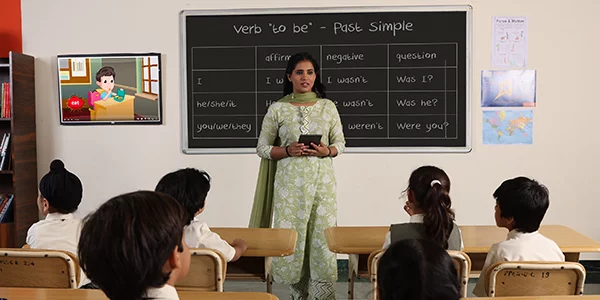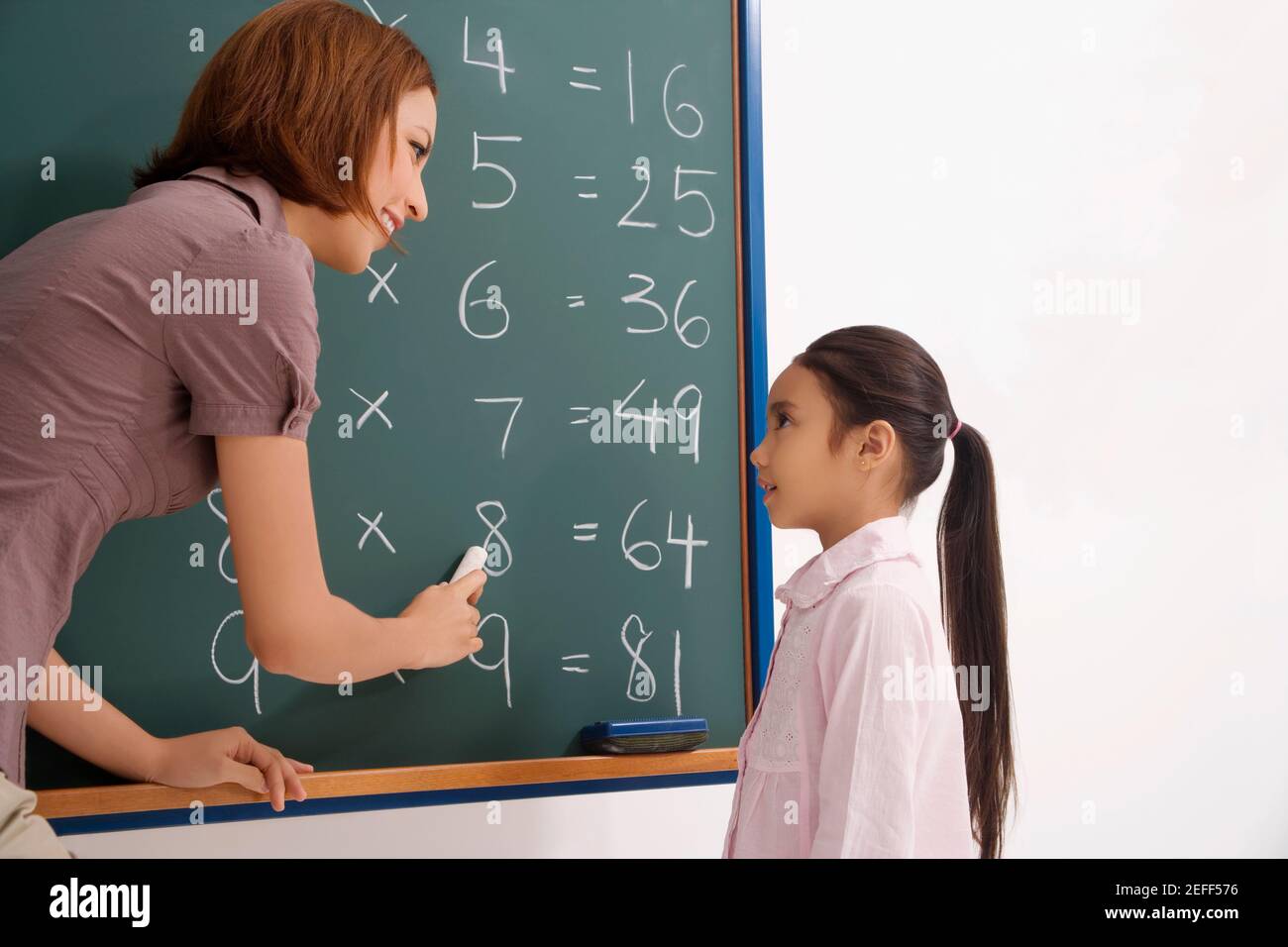Expert Primary Science Tuition Singapore for Understanding Complex Concepts
Expert Primary Science Tuition Singapore for Understanding Complex Concepts
Blog Article
A Comprehensive Guide to the Various Understanding Techniques in Main Science Guideline
The expedition of varied discovering techniques in primary scientific research direction presents a possibility for teachers to improve student engagement and understanding significantly. By checking out hands-on learning strategies, inquiry-based approaches, and collaborative methods, we can determine effective methods that accommodate numerous discovering designs. Furthermore, the integration of modern technology and distinguished guideline plays a critical function in cultivating a comprehensive environment. Nonetheless, the concern remains: exactly how can these approaches be efficiently applied in the classroom to maximize their influence? The solution hinges on a more detailed analysis of each strategy and its effects for mentor science.

Hands-On Knowing Strategies
Hands-on understanding methods play a critical duty in main science instruction, involving pupils in active expedition and experimentation. These techniques permit students to communicate straight with materials and phenomena, cultivating a deeper understanding of clinical concepts. By utilizing manipulatives, versions, and real-life experiments, teachers develop an atmosphere where trainees can observe, assume, and test their concepts.
Such methods not only boost comprehension but also cultivate important reasoning and problem-solving abilities. When pupils participate in activities like constructing straightforward makers, growing seeds, or performing chemical reactions, they are encouraged to ask concerns and look for solutions via their very own monitorings. This experiential approach aids to demystify intricate clinical concepts, making them more relatable and available.
Additionally, hands-on discovering promotes partnership among peers, as trainees typically function in teams to conduct experiments or share searchings for. This synergy not just enriches their learning experience however also develops crucial social skills. Inevitably, incorporating hands-on techniques in main science direction fosters a long-lasting love of learning and interest about the natural globe, laying a strong foundation for future scholastic quests in scientific research and beyond.
Inquiry-Based Understanding
Inquiry-based knowing is an educational technique that motivates trainees to ask concerns, examine sensations, and construct their very own understanding of scientific concepts. This technique shifts the focus from typical teacher-led instruction to a much more student-centered experience, where students take the initiative in their academic journey. By fostering interest, inquiry-based understanding promotes deeper interaction with the product, permitting pupils to check out subjects in a meaningful context.
In practice, this technique frequently includes hands-on experiments, observations, and important reasoning tasks that line up very closely with the clinical method. Students are encouraged to formulate hypotheses, design investigations, and evaluate information, which grows essential abilities such as logical and analytic thinking. The duty of the instructor in this structure is to facilitate exploration, guiding students via the questions procedure while urging independent idea and partnership.
Additionally, inquiry-based discovering supports a sense of ownership over the learning procedure, encouraging trainees to go after knowledge proactively. This technique not only boosts understanding of clinical ideas but additionally cultivates a lifelong love for knowing, gearing up students with the abilities essential to browse a progressively complicated globe.
Collaborative Discovering Approaches
Collective learning techniques encourage students to take part in purposeful interactions with peers, promoting a common duty for their academic end results. In key science direction, these methods urge learners to work together to check out scientific ideas, fix troubles, and conduct experiments (primary science tuition Singapore). By taking part in group tasks, trainees can utilize varied viewpoints, enabling for richer understanding and retention of clinical understanding
One trick facet of joint learning is the focus on interaction abilities. Pupils must verbalize their ideas, pay attention proactively to others, and discuss concepts, every one of which are important expertises in both scholastic and real-world contexts. This social interaction not just improves their understanding of clinical principles but also advertises synergy and problem resolution abilities.
Additionally, collective discovering usually brings about raised inspiration and interaction. When trainees see the value of their contributions within a team, they are a lot more likely to take ownership of their knowing journey. Educators can promote this process by designing organized team tasks that straighten with curriculum objectives while supplying assistance on effective collaboration strategies. Generally, incorporating joint knowing approaches in key science guideline cultivates a vibrant understanding atmosphere that prepares students for future academic and social challenges.
Modern Technology Integration in Science
The assimilation of technology in main scientific research direction boosts learning experiences by offering cutting-edge devices and resources that support different mentor techniques, including collaborative learning - primary science tuition Singapore. The usage of electronic systems, simulations, and interactive applications permits students to engage deeply with scientific concepts, promoting an extra hands-on approach to learning
Virtual laboratories, for instance, allow students to carry out experiments safely and efficiently, promoting inquiry-based knowing. These tools can mimic real-world scientific scenarios, allowing students to visualize complex processes that would be hard to reproduce in a typical class setup. Modern technology promotes communication and collaboration amongst trainees, as they can share findings and work with each other on jobs through on-line platforms.
Additionally, multimedia discussions and academic videos can enrich lessons by satisfying varied discovering styles, making abstract principles a lot more more information available. Information evaluation tools likewise empower trainees to collect and analyze scientific information, strengthening crucial assuming skills. Overall, the critical consolidation of modern technology in main science guideline not only improves engagement however also prepares trainees for a technologically sophisticated society, equipping them with vital skills for future clinical endeavors.
Distinguished Guideline Strategies
Separated guideline techniques are crucial for resolving the diverse needs of students in primary science education and learning. These approaches enable teachers to customize their mentor approaches to suit varying abilities, rate of interests, and finding out designs within the class. By employing distinguished direction, instructors can create an inclusive atmosphere that promotes involvement and boosts understanding of clinical principles.
One effective strategy is to use flexible grouping, which permits students to collaborate with peers at similar skill degrees or with varying viewpoints. This strategy urges peer learning and promotes critical thinking. Additionally, providing choices in assignments can empower pupils, permitting them to pick jobs that resonate with their interests while still meeting curricular this post objectives.
Moreover, including tiered jobs is an additional useful method. Deliberately tasks with differing degrees of complexity, educators can guarantee that all students are suitably tested, despite their proficiency. Making use of formative analyses to assess understanding more allows educators to readjust their instructional methods dynamically, making certain that each learner obtains the support they require.
Eventually, carrying out distinguished guideline methods in main scientific research education not just improves pupil knowing outcomes however additionally cultivates an interest for science, preparing trainees for future scholastic quests.

Verdict
In summary, efficient main scientific research guideline demands a multifaceted method that includes hands-on discovering, inquiry-based approaches, and collaborative techniques. The integration of technology and distinguished direction additionally caters to diverse discovering styles, promoting an environment conducive to exploration and crucial thinking.
The exploration of diverse learning approaches in key scientific research direction presents an opportunity for instructors to enhance pupil involvement and understanding substantially.Hands-on discovering methods play a critical role in key scientific research direction, engaging pupils in active exploration and trial and error.Inquiry-based understanding is a training method that encourages pupils to ask concerns, examine sensations, and build their own understanding of clinical ideas.Collective discovering strategies equip students to involve in meaningful communications with peers, promoting a common obligation for their educational results. In general, including collective learning techniques in primary scientific research instruction grows a vibrant navigate to this website knowing setting that prepares trainees for future scholastic and social challenges.
Report this page